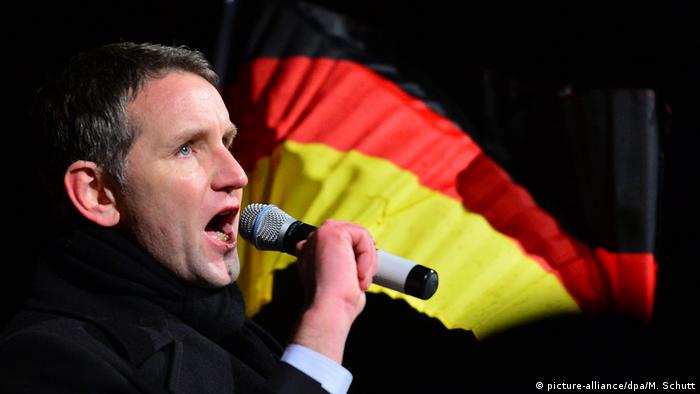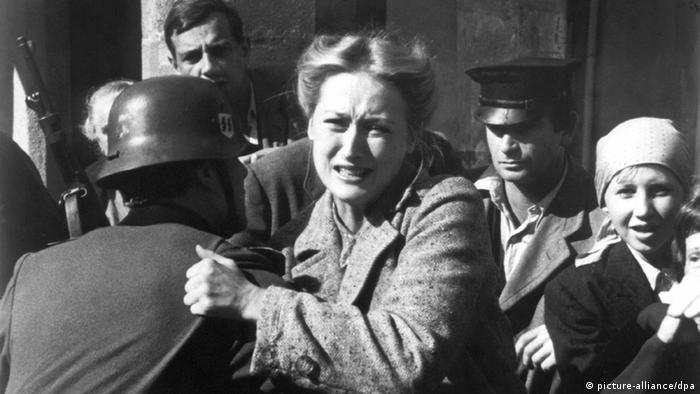Every year at the end of January Germany remembers the murder of millions of Jews and other groups during the time of national socialism. More than ever, is a debate about the ‘correct’ memory.

“Who does not remember history is condemned to repeat it.” This set of Spanish-American philosopher and writer George Santayana is also in the concentration camp of Auschwitz. The concentration camp (KZ) was at 27. January 1945 liberated by the Red army. The memory of the victims of national socialism in Germany – along with Jews, for example, Sinti and Roma, homosexuals, the disabled and the forced laborers – is for years, so to speak, the task of the State: state representatives and the German Bundestag to remember. But also the public interest is unabated. Former concentration Camps and other memorial sites reported record numbers of visitors.
Nevertheless, Jewish organizations in Germany, a new anti-Semitism. Meron Mendel, the Director of the Frankfurt Anne Frank educational centre, says: “The memory of world champion in the struggle against today’s hatred of Jews limp.” According to a survey by the EU Agency for fundamental rights in twelve European countries. After that, Jews in Germany were in the past year, not only more hostility than in the past, but in Germany much more frequently than elsewhere.
What concerns in Germany, particularly, are Statements made by politicians in the AfD. Party leader Alexander Gauland had said last June: “Hitler and the Nazis are just a bird shit in over a thousand successful years of German history.” And the Thuringian AfD-Chef Björn Höcke called for two years ago, a “reminder of a political 180-degree turn”.

Law Björn Höcke (AfD), a populist, a “reminder, called for a political 180-degree turn”
The historian Wolfgang Benz believes that the anti-Semitism of the salon is capable of, when you think about it, “what indignation,” Gauland and Höcke would have triggered. In an interview with Deutsche Welle, he also denies that it is “getting worse”: “We are possibly more sensitive to this Roar, which resounds to us from the AfD.”
Too much, too little, or the wrong memory?
The memory itself in Germany has an eventful history. Until the 1960s, large Silence in General. Wanted to know from the own crimes and failures, nothing. Especially with the ‘ 68 movement was, then, the big questions – and accusations – the Younger over the Older.
40 years ago the American television series “Holocaust” in West Germany, reaching ratings of almost 40 percent. It is currently being broadcast. The word “Holocaust” in 1979, the majority of Germans still unknown. The series went on to have a tremendous effect: “it is Only through this Film something of the culture of memory in Germany,” says Werner Jung, the Director of the NS-documentation centre in Cologne, Germany. A few months later the Bundestag decided by a narrow majority, that the mass killings should not become time-barred at the time of the national socialism.

The television series “Holocaust” was in Germany and had a tremendous effect
But even then, there was also resistance. The former WDR TV game chef Günter Rohrbach received death threats on two masts explosive attacks were committed. The Right to speak of a “Hetzserie”, the Left disparagingly of a “commercial Hollywood melodrama”.
Others saw later, a reminder ad nauseam. The writer Martin Walser defendant in 1998 on the occasion of the awarding of the peace prize of the German book trade, an “instrumentalization of Auschwitz”, and said that the constant discussion of the Holocaust as a “moral cudgel” have the opposite effect. The statement triggered a heated debate.
A very different criticism comes from the German-canadian sociologists Yark Michal Bodemann. He complained of the Holocaust commemoration in Germany, had been nationalized and have no Jewish character. The Jews should take care of before all the commemoration, he advises, they also needed to officer, no state anti-Semitism.
Soon there will be no witness to a more
However, there are numerous examples of how Jewish and non-Jewish Remember the interaction and how it is the New. During the recent Chanukah-Festival in Berlin, the Federal President of Germany Frank-Walter Steinmeier lit the first candle, was also expressed the concern that “the memory of the Shoah is lost”. But there were also other stories, a positive one. About the Leonid gdańsk: born in Kiev, came over two decades ago to Berlin. “The Jewish life I learned in Germany,” he said. And Charlotte Knobloch, the former President of the Central Council of Jews in Germany, despite anti-Semitism have a future in the country: “We are there, we stay there.”

Will nationalized the memory of the””? Federal President Of Germany Frank-Walter Steinmeier (Mi.) during the Hanukkah Festival
Hope is also true that Israel has only honored in November, two German posthumously, the Jews, have protected the lawyers Heinz Gützlaff and the actor Hans Söhnker. Or that the Anglo-Jewish Opera singer Simon Wallfisch, grandson of Auschwitz Survivor Anita Lasker-Wallfisch, adopted because of the Brexit German citizenship. Several of his great-grandparents were murdered by the national socialists.
The forms of commemoration change, due to the fact that soon all of the survivors and witnesses will be dead. Wolfgang Benz believes: “The memory is independent of the time of the witnesses, and with the death of the witness does not disappear, the knowledge of the historical events.”
The 86-year-old Israeli historian Saul Friedländer has held in the Bundestag this year’s commemorative speech, once said: “Someday you will read books about the third Reich and the Holocaust as it is today about Caesar’s Gallic war. So it will come, it can’t be helped.” Wolfgang Benz believes that this is “a self-evident process, but is not to be equated with blunting or indifference. The Holocaust will never disappear from the public memory.”
Watch the Video 03:11 live Now 03:11 Min. Share
Holocaust Commemoration
Send Facebook Twitter google+ Tumblr VZ Mr. Wong Xing Newsvine Digg
Permalink https://p.dw.com/p/3CVTV